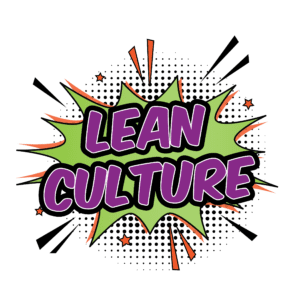The Lean Culture startup community meets online monthly to hear from entrepreneurs sharing lessons learn and experienced practitioners.
 Lean Culture Startup Community
Lean Culture Startup Community
Lean culture refers to a set of principles and practices adopted by startups to promote efficiency, innovation, and rapid learning and iteration for building a scalable business. Many of models are based on the Lean Startup methodology introduced by Steve Blank’s in his book “The Four Steps to the Epiphany” and popularized by Eric Ries in his book “The Lean Startup.” Additional insights and models include Jobs-to-be-Done model was popularized by Clayton Christensen and Rule of One popularized by Jonathan Greechan, co-founder of the Founder Institute.
The core idea behind a lean culture startup is to eliminate waste and maximize learning through a scientific approach to entrepreneurship. It emphasizes the importance of validating assumptions, gathering feedback from customers, and making data-driven decisions throughout the product development process. By focusing on rapid learning, continuous improvement and iterative development, startups aim to reduce the risks associated with traditional, large-scale product launches.
Key characteristics of a lean startup culture include:
- Experimentation and Innovation: Startups encourage a culture of experimentation and innovation, where employees are not afraid to take calculated risks and learn from failures. This fosters a dynamic and adaptable environment that drives continuous improvement.
- Measure-Learn-Build Feedback Loop: Startups emphasize the rapid learning and iteration of their products by gathering metrics, analyzing data, and learning from user behavior. This iterative feedback loop helps them refine and improve their offerings based on actual customer insights.
- Minimum Viable Product (MVP): Startups create a basic version of their product or service with the minimum set of features required to test its viability in the market. The goal is to quickly gather feedback and learn from real user experiences.
- Jobs-to-be-Done: focuses on the “job” or task that customers are trying to accomplish rather than just their demographic characteristics or preferences. The Jobs-to-be-Done model was popularized by Clayton Christensen and his colleagues.
- Customer Validation: Startups actively engage with customers to understand their needs, pain points, and preferences. By obtaining early customer feedback, they can align their product development efforts with market demands.
- Rule of One: popularized by Jonathan Greechan, co-founder of the Founder Institute. It’s that entrepreneurs should start by solving one problem, for one customer, with one product, that has one killer feature, and one revenue stream.
- Cross-functional Teams: A lean startup culture promotes small, cross-functional teams that can quickly respond to market changes. These teams work collaboratively, communicate effectively, and are empowered to make autonomous decisions.
- Pivot and Persevere: Startups are willing to make strategic changes to their products or business models based on the insights gained from customer feedback. This flexibility allows them to adapt quickly to market dynamics and increase their chances of success.
Lean Culture Meetup
The Lean culture startup community at Lean Culture Meetup can help you adopt a combination of business-hypothesis-driven experimentation, iterative product releases, and validated learning.
Upcoming Meetings
Upcoming meeting can be found at https://www.meetup.com/lean-culture/
Recording of Past Meetings
Overall, a lean startup culture values agility, customer-centricity, and learning from real-world feedback. It aims to reduce waste, increase efficiency, and increase the chances of building successful products or services by continuously iterating and improving based on validated insights.
